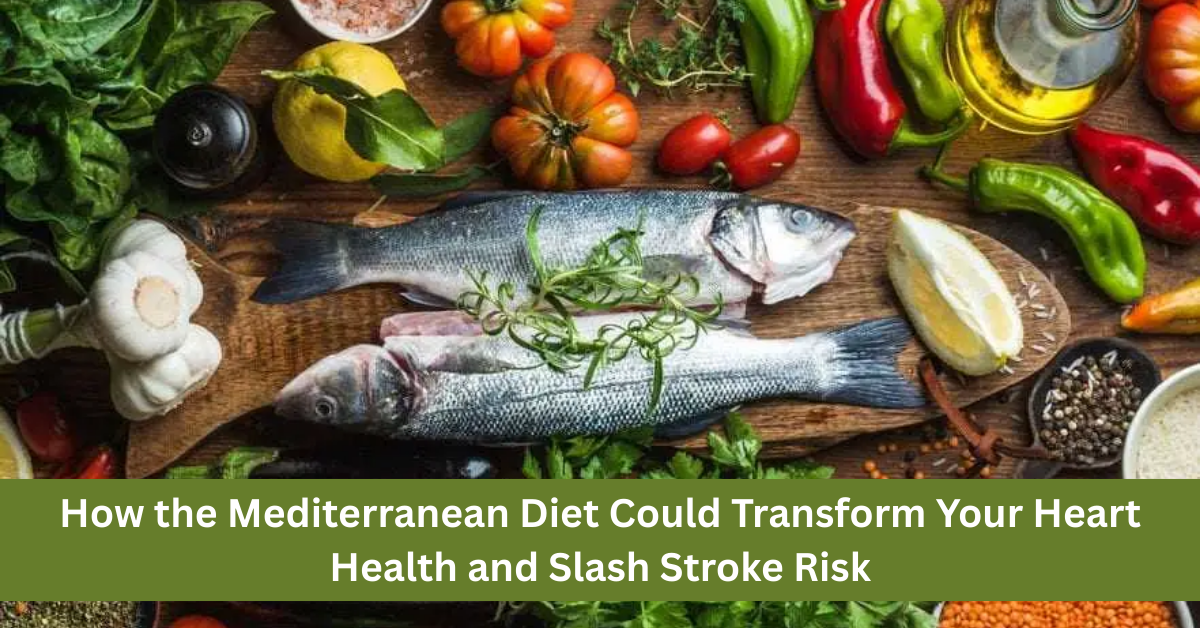The Mediterranean diet has been celebrated for decades for its role in promoting longevity and heart health, but a groundbreaking U.S. study takes this praise to a new level. Recently, researchers found strong evidence linking this flavorful and nutrient-rich diet to a significant reduction in the risk of stroke and heart failure. This discovery highlights how lifestyle choices can profoundly influence our cardiovascular wellbeing.
With heart disease and stroke remaining leading causes of death, especially among younger adults adopting sedentary lifestyles and processed foods, the Mediterranean diet offers a promising nutritional blueprint. Embracing fresh vegetables, healthy fats, and lean proteins, this diet not only supports physical health but also provides a tasty, sustainable eating pattern ideal for today’s busy life.
Understanding the Mediterranean Diet
The Mediterranean diet emphasizes whole, minimally processed foods native to countries bordering the Mediterranean Sea. Its core components include abundant fresh fruits and vegetables, whole grains, nuts, legumes, and olive oil as the primary fat source. Moderate consumption of fish and poultry is encouraged, while red meat and sweets are limited. Wine, particularly red, is consumed in moderation alongside meals.
This diet is rich in antioxidants, fiber, and heart-healthy monounsaturated fats, all of which contribute to reducing inflammation, improving cholesterol levels, and promoting overall cardiovascular health. Its balanced nature makes it easy to adopt without feeling deprived or restricted.
Recent U.S. Study: Key Findings on Stroke and Heart Failure
The latest U.S. based study monitored thousands of participants over several years to analyze the impact of the Mediterranean diet on cardiovascular events. Results demonstrated a clear association between adherence to this diet and lower incidences of stroke and heart failure. Participants who closely followed the Mediterranean eating pattern had a notable decrease in hospitalization rates due to heart complications.
One of the study’s standout findings was that even moderate adherence provided protective benefits, making this diet accessible for a wide range of individuals rather than requiring perfection. This makes it an attractive option for young adults seeking manageable health improvements without drastic lifestyle overhauls.
How the Mediterranean Diet Protects Heart Health
The Mediterranean diet supports heart health through multiple pathways. Its abundance of fiber helps regulate blood pressure and glucose levels, while monounsaturated fats like olive oil elevate good cholesterol and reduce harmful cholesterol. Antioxidants from fruits and vegetables combat oxidative stress, a key driver of cardiovascular disease.
Additionally, the diet’s emphasis on fish provides omega-3 fatty acids, which lower inflammation and improve arterial function. These factors collectively lower the risk of clogged arteries, high blood pressure, and cardiac muscle strain, the leading causes of stroke and heart failure.
Comparison Table: Mediterranean Diet vs. Typical American Diet
| Aspect | Mediterranean Diet | Typical American Diet |
|---|---|---|
| Primary Fat Source | Olive oil (monounsaturated fats) | Saturated fats from processed meats and fried foods |
| Vegetable and Fruit Intake | High, multiple servings daily | Low, often limited to 1-2 servings |
| Whole Grains | Integral part of meals | Often replaced by refined grains |
| Protein Sources | Fish, legumes, poultry, limited red meat | High in red and processed meats |
| Added Sugars | Minimal | High in sodas, desserts, and snacks |
| Processed Foods | Rarely consumed | Frequently consumed |
Practical Tips for Young Adults to Adopt the Mediterranean Diet
Transitioning to the Mediterranean diet doesn’t require an all-or-nothing approach. Start by replacing unhealthy fats like butter with olive oil for cooking and dressings. Incorporate at least one serving of vegetables into every meal and aim for fresh fruits as snacks instead of processed options.
Experiment by adding fish such as salmon or mackerel twice a week, and explore recipes featuring legumes like lentils and chickpeas to boost protein intake. Swap refined grains for whole grain bread and pasta for longer-lasting energy and better nutrition. Remember, moderation is key; occasional indulgences won’t harm overall health.
Foods to Embrace and Foods to Limit
Embracing whole, nutrient-dense foods is a central Mediterranean diet principle. Key foods to focus on include:
- Extra virgin olive oil
- Fresh vegetables (leafy greens, tomatoes, peppers)
- Fresh fruits (berries, citrus, melons)
- Whole grains (brown rice, quinoa, whole wheat)
- Nuts and seeds (almonds, walnuts, chia seeds)
- Legumes (lentils, beans, chickpeas)
- Fish and seafood
- Moderate dairy (yogurt, cheese)
Limit or avoid foods that increase heart disease risk, such as:
- Processed and red meats
- Refined sugars and sweets
- Highly processed snack foods
- Excessive salt and sodium
- Saturated and trans fats found in fried foods
Impact of the Mediterranean Diet Beyond Heart Health
While the focus here is cardiovascular health, the Mediterranean diet carries benefits across multiple aspects of wellbeing. Numerous studies link it to improved brain function, reduced risk of type 2 diabetes, and better weight management. Its anti-inflammatory properties help decrease symptoms in conditions like arthritis and some autoimmune diseases.
Moreover, the varied and flavorful nature of this diet supports mental health by promoting a balanced microbiome and supplying key nutrients essential for mood regulation. For young adults juggling busy schedules and stress, this diet offers both physical and emotional enrichment.
Conclusion: Why Adopting the Mediterranean Diet Makes Sense Today
The latest U.S. study highlights how accessible, tasty, and effective the Mediterranean diet can be in fighting cardiovascular disease, particularly stroke and heart failure. Its focus on natural foods, balanced nutrients, and heart-healthy fats matches the pressing need for sustainable health solutions in an increasingly fast-food dominated culture.
For younger generations aiming to build lifelong resilience against chronic illnesses while enjoying their meals, the Mediterranean diet stands out as a clear winner. Starting with small, consistent changes can lead to dramatic improvements in heart health and overall quality of life. Ultimately, this diet isn’t just a fleeting trend but a scientifically backed approach to living better, longer.




